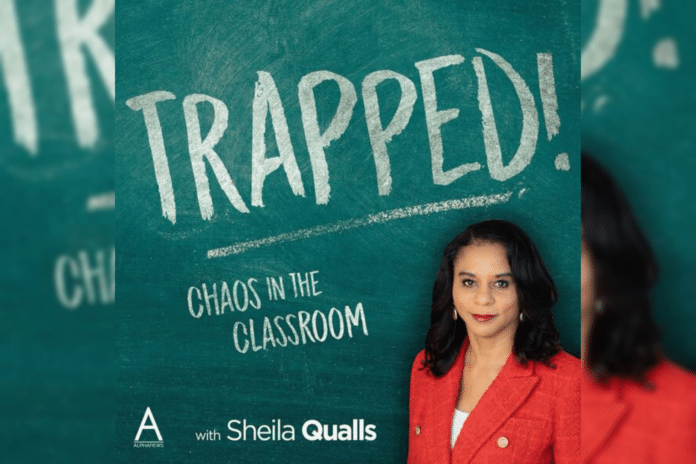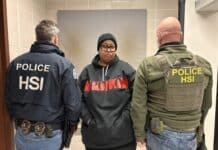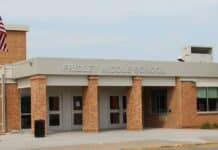Harding High School’s 15-year-old stabbing victim was a visible sign of the decay in Minnesota public schools.
Devin Scott, who was stabbed to death in the St. Paul high school this year, was a troubled student being passed from school to school.
“A generation ago, a kid like Devin Scott would never have been in school. He would have been expelled before he ever got to Harding High. So how did he end up there?”
Alpha News journalist Sheila Qualls asks that question in the first episode of her podcast, “Trapped!: Chaos in the Classroom.”
In this limited podcast series, Qualls talks to parents, students, cops, administrators, and teachers to examine the problems in Minnesota’s public education system.
In this first episode, she looks at the high stakes of setting low expectations for students.
Kids are still smart; schools fail them
Just like COVID-19 didn’t “cause” learning loss, but rather exposed it, the violence on display now requires parents to take a closer look at what really goes on in their children’s schools, Qualls said.
Low expectations and zero accountability created a perfect storm for disrespect to run rampant, Qualls explained. Students talk back to teachers, hold full conversations in the middle of class, text, swear, and dare teachers to discipline them, she said.
The Minnesota Department of Education reported declining public school enrollment for the third year in a row. Reading, math, and science scores continue to fall.
But kids are as intelligent and inquisitive as they have ever been; it’s the public schools that are failing them.
“You would think data like that would force us to shift back … We used to be the marquis of what people strove for in education,” said one source.
Officer Mark Ross, president of the St. Paul Police Federation and a former school resource officer, said he was lucky to have supportive staff during his time as an SRO from 2010 to 2014. At that time, breaking up fights was still required.
“These are kids; part of being an adult is intervening when kids are doing things they should not be doing,” Ross said.
But now, in general, kids who have a history of being dangerous are not being dealt with at all. Administrators and teachers do not call the cops. Parents do, when they hear about the assaults hours after they happen.
Students are no longer expelled, said Ross, but are “administratively transferred.” This is how Devin Scott ended up at Harding High School.
“Those administrative transfers are the root of the problem,” Ross said. “For every kid you transfer out, you get another one in.”
Violence has surged after school boards removed cops from schools following the death of George Floyd. School boards claimed guns and badges in schools made some students uncomfortable.
But many more are uneasy about the lack of discipline and accountability.
‘Everything’s trapped inside me’
One student spoke with Qualls about his experience as a freshman at White Bear Lake North.
Anthony said middle school did not prepare him for this. He was prepared for the teachers and the grading.
“What they should have prepared us for was the atmosphere of the students and how the students all treat each other,” Anthony said.
He sees fights two to three times a week, and he has no idea what happens to those who are responsible.
“Anytime we ask something, they just say, ‘It’s being handled, it’s being handled.’ And to just look away from it, and act like it never happened,” he said. “And I don’t think that’s good.”
“Because we can’t just ignore someone getting punched in the face on the ground, at noon, at high school. I just don’t think that’s how things should be handled,” he continued.
Those who ask questions are questioned themselves, according to Anthony.
“It’s like I’m trapped, like everything’s trapped inside of me, because I can’t talk about it,” Anthony said.
An increasing number of students are taking weapons to school, and it’s impossible to know how many, Ross said.
Shootings happened at two other St. Paul school campuses this year.
“We’re at a point now where there’s no control in the high schools,” Ross said.
Often, fights are recorded and posted on social media or “fight-club” type pages.
In episode one, Qualls also speaks with Anthony’s mother, the grandmother of a boy assaulted at a Blaine high school, and other inside sources about the illegal activity in public schools.
LISTEN TO EPISODE ONE:











